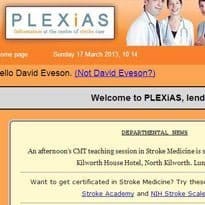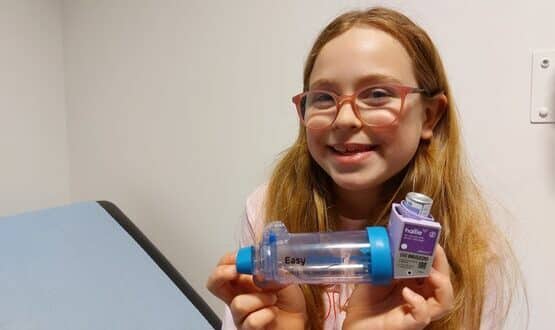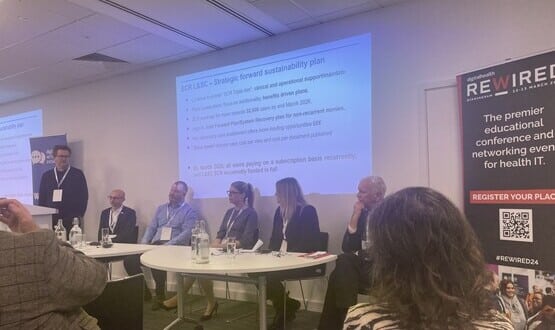Stroke referrals go digital at Leicester
- 3 April 2013

A web-based referral system developed by a Leicester stroke consultant has significantly improved referral times for people at risk of major stroke.
Consultant in stroke medicine at University Hospitals of Leicester NHS Trust Dr David Eveson said there was a national requirement for acute trusts to see 60% of patients who have a ‘mini-stroke’, or TIA, within 24 hours of their first contact with a health service.
These people are at very high risk of having a major disabling stroke, but if doctors intervene early enough they can stop it happening.
Dr Eveson said University Hospitals Leicester had set up a seven-day-a-week clinic to see ‘at risk’ patients, but was unable to hit the 60% target because of delays between a patient presenting at a health service and the clinic receiving a referral.
The trust was not getting the full amount of its best practice tariff because of its failure to meet the target and commissioners were going to impose a penalty if the trust did not “raise its game”, he explained.
In order to speed up the referral process, a working group decided to implement an online web-based referral system with some decision support and risk stratification functionality.
The electronic booking system allows the referrer – usually A&E staff – to see when appointments are available and book the patient a slot in real-time.
The software, called Plexias, was developed at no cost by Dr Eveson who has a keen interest in IT.
“Traditionally in hospitals, IT specialists and clinicians have been separate entities and it’s difficult to communicate across the needs of each, but we have demonstrated a low-cost effective method of working together for the benefit of patient care,” he said.
Plexias went live in August last year and the trust has exceeded its TIA-referral target since then, generating extra income of £32,000 a year and avoiding a monetary penalty.
The trust is going through the process of having Plexias accredited as a medical device because it has decision support software built into it.
It will then look at developing a platform for other rapid access clinics such as deep vein thrombosis and heart failure.
“As a trust we’re very keen to provide access to these very rapid access ambulatory services. It’s all about avoiding hospital admissions so the patient gets prompt specialist treatment in the right place at the right time without having to come into hospital and occupy a bed,” Dr Eveson explained.
“The feedback has been excellent, it’s very widely used with about 4-5 referrals a day from A&E.”
Eveson added that the software could be used by other trusts as a substantial number were failing to meet the TIA targets.




